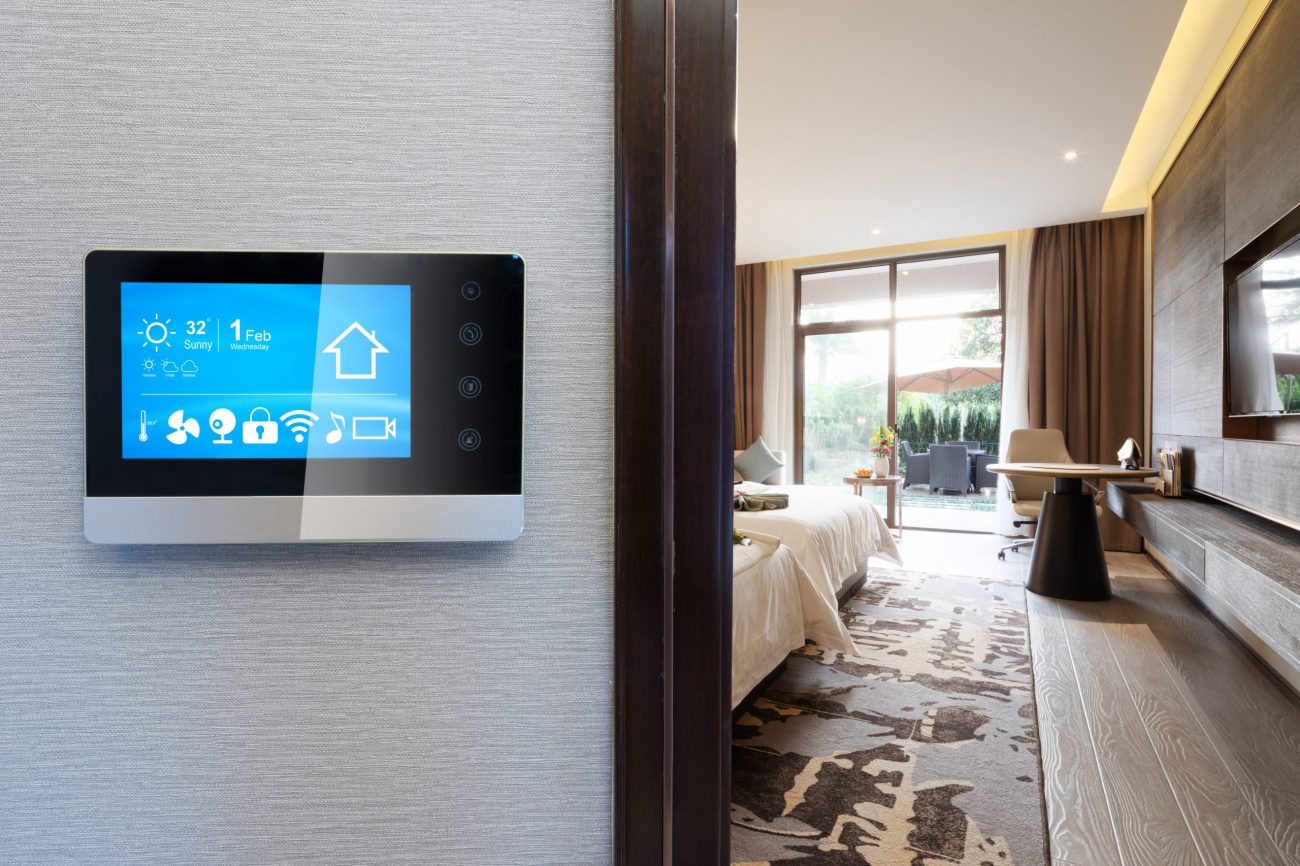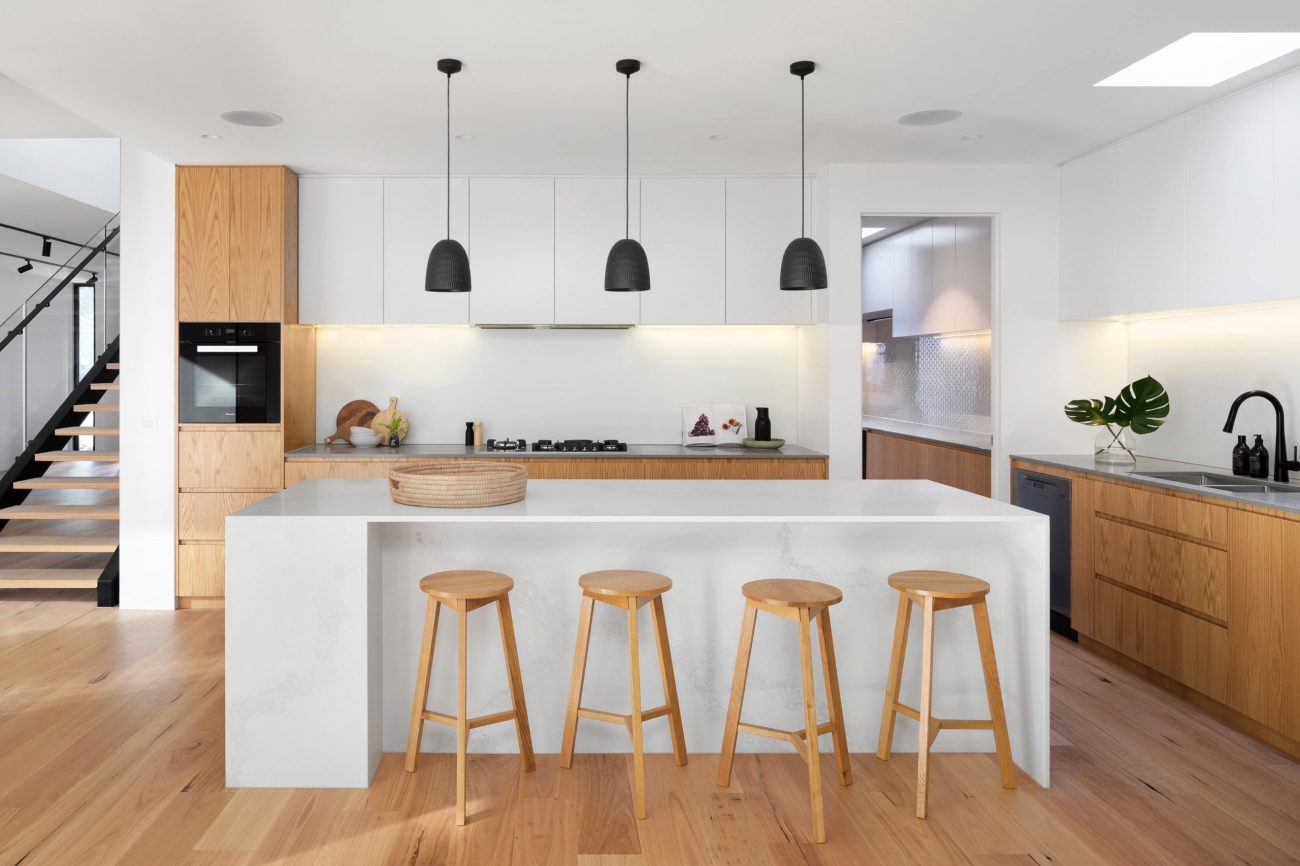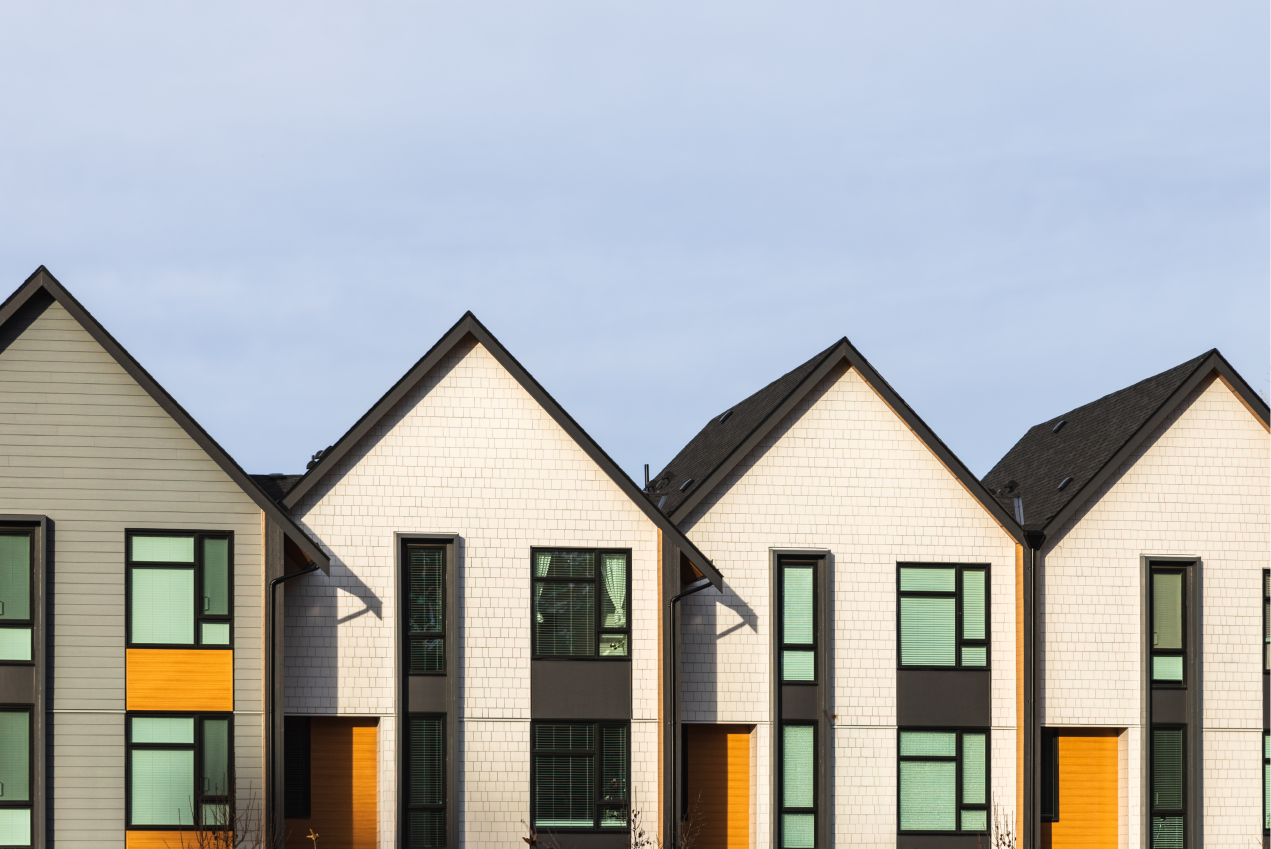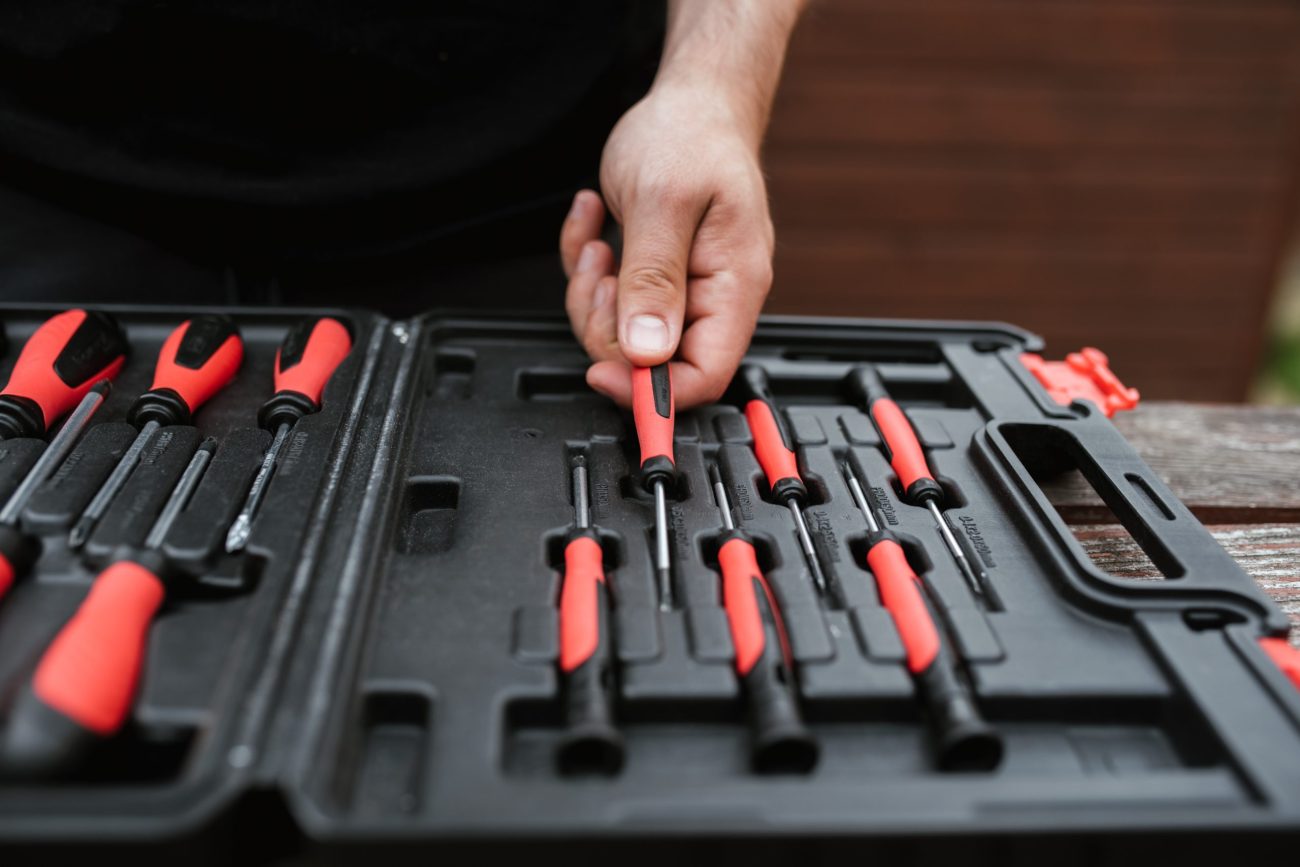Most modern homes have a complex web of systems and devices that we use every day, from lighting features and security systems to dishwashers, coffee makers, and speakers. Home automation puts all these controls in one place. Smart home features can simplify your home’s systems and suit the unique way that you use your house every day, in the same way that the applications on your phone complement your lifestyle.
How does home automation work?
Smart home systems allow for a birds-eye view of all your home’s functions and devices. It’s an intelligent way to centralize everything you need your home to do. Think of it like a control room, the hub of a spaceship, or the way the brain sends messages to your body. As part of a typical morning routine, a smart home system could set your coffee maker to start up 20 minutes before you wake up, schedule a soft morning glow to dawn in your bedroom as you rise, and automate the security system to turn off before you leave –– all before you wake up.
Smart home features
A smart home uses a comprehensive system that’s usually controlled from your smartphone. Smart home features can include:
- Type, colour, and brightness of overhead lights, lamps, and outdoor lighting
- Climate control features like heating and cooling, including features that let you warm up the house right before you get home or turn off the air conditioning after your guests leave
- Security features like video and audio recording, alarms, emergency calls when a break in occurs, or a scheduled time when all your doors lock or your garage doors close
- Alerts for flooding, fire, or appliance malfunctioning
- Convenience for travel like phone alerts when someone drops off a package, or direct communication with someone who rings your doorbell from wherever you are
- Voice-activated actions like ordering grocery items or cleaning supplies
- A range of add-ons like air purification systems, vacuum controls, pet cameras to keep an eye on fur babies, and alerts when you need to change your water filter or replace a light bulb
- Music and audio setup with connected speakers throughout your home
- Entertainment features like mechanized TV screens that unfold when needed or playlists that automatically begin when you start exercising
- Optimized energy consumption
- Smart fire alarms that detect smoke early or turn on sprinklers
- Blinds and curtain controls
Benefits of smart homes
Smart home systems can be an environmentally-friendly way of saving money and time. They give you remote control over the systems in your home to increase security, function, and efficiency. A well-built smart system also learns your patterns and understands your schedule.
How do smart home systems save money?
Smart homes can offer warnings that prevent damage, reduce the electricity you use, and increase efficiency. Most systems require a set for a whole web of home controls, saving you more than if you purchased multiple functions from different providers. Here’s how a smart home can save you money:
- Lower electricity costs with lighting that automatically dims or turns off in case you forget
- Water leak detectors installed under sinks can alert you if a frozen pipe or water leak begins
- Automated reminders to maintain your home’s systems can help you save on costly repairs
- Humidity monitoring in attics or bathrooms can help prevent mold or mildew
- Watering systems for your lawn or garden can be automated to only turn on when it hasn’t rained, helping you avoid unnecessary water usage
- Smart thermostats track changes in weather so that you’re not needlessly running the AC or heat
- Alerts when you leave your fridge open or forget to lock the back door can save you money on electricity or prevent costly break-ins
Here’s a tip: If you’re not ready to commit to a full smart home setup, start with a few smart devices. Begin with a climate control system, smart temperature controls, or utilise bluetooth audio, smart plugs, and lighting that’s controlled from your phone.
Does a smart home system add value to my home?
Smart home systems can add value to your home, especially if they’re hard-wired installations that the next owner can access and personalize. A smart home system that’s well installed adds convenience, which can be appealing to a buyer. Automated systems also complement a busy lifestyle and can help preserve the value of a property.
- A pre-installed system might be appealing to a new owner as a modern convenience.
- Smart homes can help you stay on top of regular maintenance to preserve the value and integrity of your home by preventing damaging leaks, burglaries, or fires.
- Smart systems can make your home look more modern and aesthetically pleasing, with less light switches on walls and appealing lighting setups that set a mood.
- Smart home systems provide security for home owners who frequently travel, with built-in cameras and alerts sent directly to their phone. A new buyer might be happy to pay extra for a well-installed system.
Although a smart home system can add value, some homeowners might prefer a less technical setup or lean towards a more traditional system. A new owner might not want to use the same smart home device you’ve been using and may have a different smartphone that isn’t as compatible with your system.
Consider whether the features you want are the same features that the next owner might also appreciate, and whether they’re easy to use for less tech-savvy folks. If you’re thinking of selling your home, invest in a well-installed, versatile system or choose one that can easily come with you when you leave
Let Houseful help you navigate the homebuying process
Houseful provides personalized guidance for your real estate journey. Customise your search by selecting home features most important to you. Our dedicated team of experts offer support from initial planning through to moving day, and our blog is full of articles to help you plan.
This article offers general information only and is not intended as legal, financial or other professional advice. A professional advisor should be consulted regarding your specific situation. While the information presented is believed to be factual and current, its accuracy is not guaranteed and it should not be regarded as a complete analysis of the subjects discussed. All expressions of opinion reflect the judgment of the author(s) as of the date of publication and are subject to change. No endorsement of any third parties or their advice, opinions, information, products or services is expressly given or implied by Royal Bank of Canada or its affiliates.
Browse the newest listings in your area
OJOHome Canada Ltd. (“Houseful”) is a wholly-owned subsidiary of Royal Bank of Canada
20 King Street West, 8th Floor
Toronto, ON, Canada, M5H 1C4
833-709-1946
IDX information is provided exclusively for consumers’ personal, non-commercial use and that it may not be used for any purpose other than to identify prospective properties consumers may be interested in purchasing. Information deemed reliable but not guaranteed to be accurate. Listing information updated daily.
Houseful is committed to ensuring accessibility for individuals with disabilities. We are continuously working to improve the accessibility of our web experience for everyone. We welcome feedback and accommodation requests, please submit them here.
The trademarks REALTOR®, REALTORS®, and the REALTOR® logo are controlled by The Canadian Real Estate Association (CREA) and identify real estate professionals who are members of CREA. The trademarks, Multiple Listing Service® and the associated logos are owned by CREA and identify the quality of services provided by real estate professionals who are members of CREA. Used under license.
Please use the following address to send referral payments:
Lockbox: OJOHome Canada Ltd. PO Box 9479, Stn A, Toronto, ON M5W 4E1
Lockbox Number: T09479C
® / ™ Trademark(s) of Royal Bank of Canada. Used under licence.




